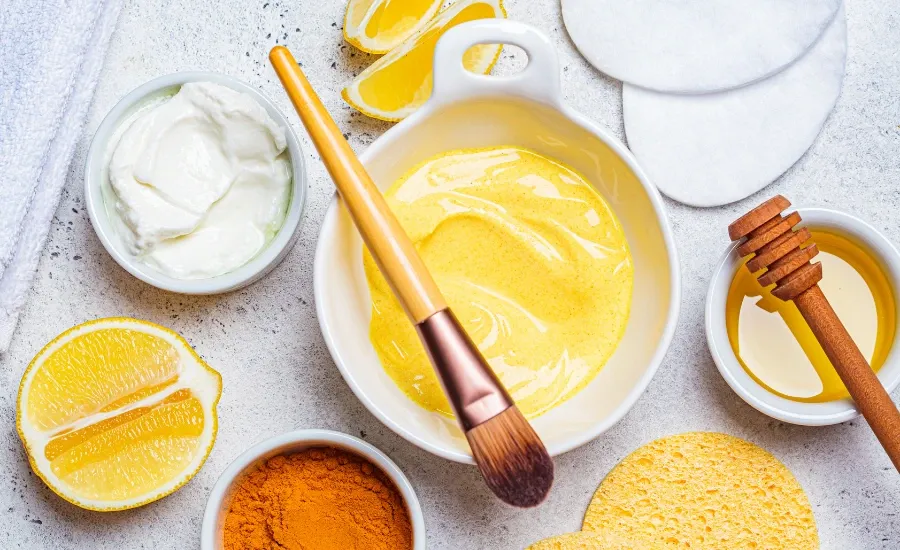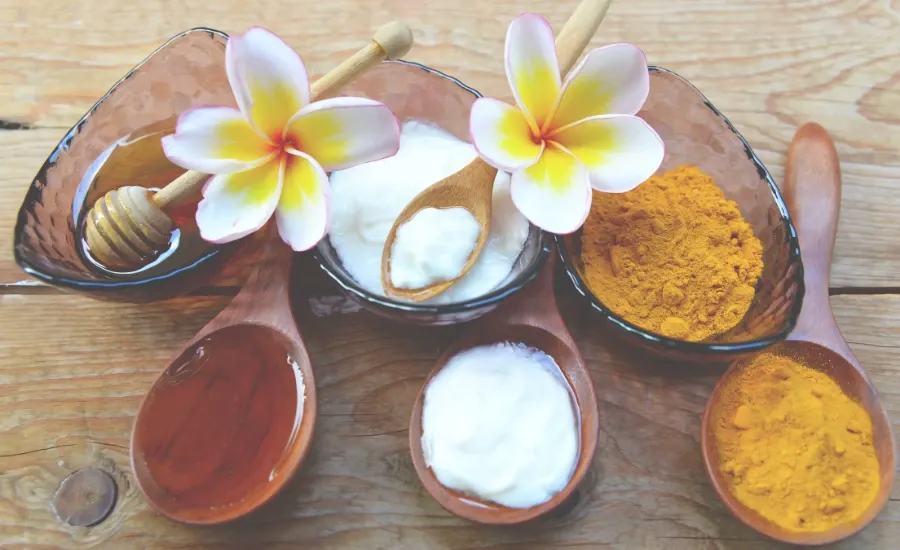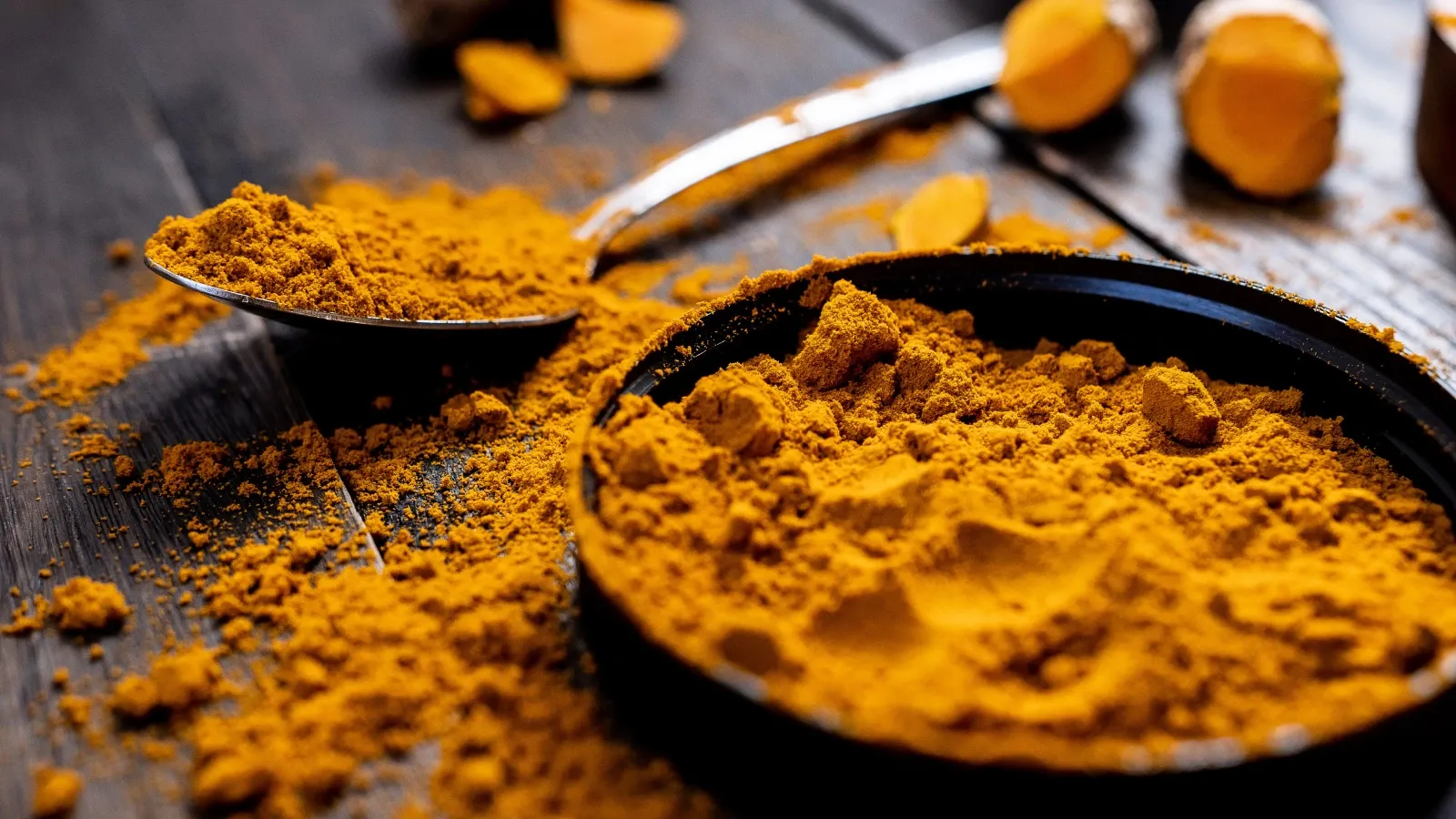You probably know turmeric from cooking since it’s an excellent ingredient with multiple benefits for our health. Turmeric is rich in phytonutrients that may protect the body by neutralizing free radicals (pollution, sunlight) and shielding the cells from damage.
However, turmeric has gained popularity in beauty routines due to its potential skin-brightening and anti-inflammatory properties. According to Healthline, turmeric contains compounds that may reduce swelling (inflammation) and irritation on the skin. Inflammation and irritation can worsen other skin conditions, so using turmeric in a face mask may help soothe the skin.
What are the benefits of turmeric in the skin?
According to recent studies, applying a turmeric face mask may help soothe inflamed skin, reduce redness, and calm skin conditions such as acne, rosacea, or eczema. The active compound in turmeric, curcumin, is known for its potent anti-inflammatory and antioxidant properties.These properties make turmeric attractive for skin care, as they can help with various skin concerns. Turmeric is often used to help even out skin tone and reduce the appearance of hyperpigmentation and dark spots. As an antioxidant, turmeric can help protect the skin from free radical damage, which contributes to premature aging.
Turmeric has a long history of use in traditional beauty practices, particularly in South Asia. The modern beauty industry has recognized and incorporated these traditional uses.
Nowadays, turmeric can be found in a wide range of skincare products, including face masks, serums, moisturizers, and cleansers promising flawless skin (we are investigating and will be reporting back on that!).
In the meantime, we gathered the most efficient DIY face mask with turmeric to try at home. All recipes contain ingredients that you already have at home, and you only need 10-15 minutes of your time.
1. Turmeric, Honey, and Milk Mask

This face mask is ideal for brightening and hydration. To get the best results, you should apply it once per week.
Ingredients
- 1 teaspoon turmeric powder
- 1 tablespoon honey (raw honey is preferred)
- 1 tablespoon milk (or yogurt for a thicker consistency)
Instructions
- Mix all ingredients in a small bowl until a smooth paste forms.
- Apply the mask evenly to your face, avoiding the eye area.
- Leave it on for 15-20 minutes.
- Rinse thoroughly with warm water.
Tip: Honey is a natural humectant, drawing moisture to the skin, while milk adds extra moisture and can gently exfoliate.
2. Turmeric and Lemon Juice Mask

If you suffer from dark spots and acne, this face mask will act as an anti-inflammatory to your skin and help you get rid of acne scars and dark spots. Repeat once per week for best results
Ingredients
- 1 teaspoon turmeric powder
- 1/2 teaspoon fresh lemon juice
Instructions
- Mix the turmeric powder and lemon juice in a small bowl until a paste is formed.
- Apply the mask to the affected areas or your entire face, avoiding the eye area.
- Leave it on for 10-15 minutes.
- Rinse thoroughly with warm water.
Important: Lemon juice can make your skin more sensitive to sunlight, so wearing sunscreen after using this mask is necessary. Also, if you have sensitive skin, do a test patch before applying it to your entire face.
Tip: Lemon juice has natural bleaching properties that can help to lighten dark spots.
3. Turmeric and Yogurt Mask

This DIY face mask can exfoliate your skin, while yogurt will act as a soothing agent and will leave your skin feeling soft and rejuvenated. Apply 1-2 times per week.
Ingredients
- 1 teaspoon turmeric powder
- 2 tablespoons plain yogurt
Instructions
- Combine the turmeric powder and yogurt in a bowl.
- Mix until a smooth paste is created.
- Apply the mask to your face.
- Leave it on for 15 minutes.
- Rinse with warm water.
Tip: Yogurt contains lactic acid, which is a gentle exfoliant.
Important Notes
Before you apply your turmeric face mask, take a look at the following:
Staining: Turmeric can temporarily stain the skin yellow. To minimize this, use a small amount and rinse thoroughly with lukewarm water.
Patch Test: Before applying any DIY mask to your entire face, perform a patch test on a small skin area to check for allergic reactions or irritation.
Sun Sensitivity: Some ingredients, like lemon juice, can increase sun sensitivity. Always wear sunscreen after using these masks.
Quality: Use high-quality turmeric powder for best results.
In general, turmeric is considered safe when applied to the skin, but if your skin is sensitive, make sure you consult your dermatologist first to avoid irritation.
 THE WORKING GAL
THE WORKING GAL





